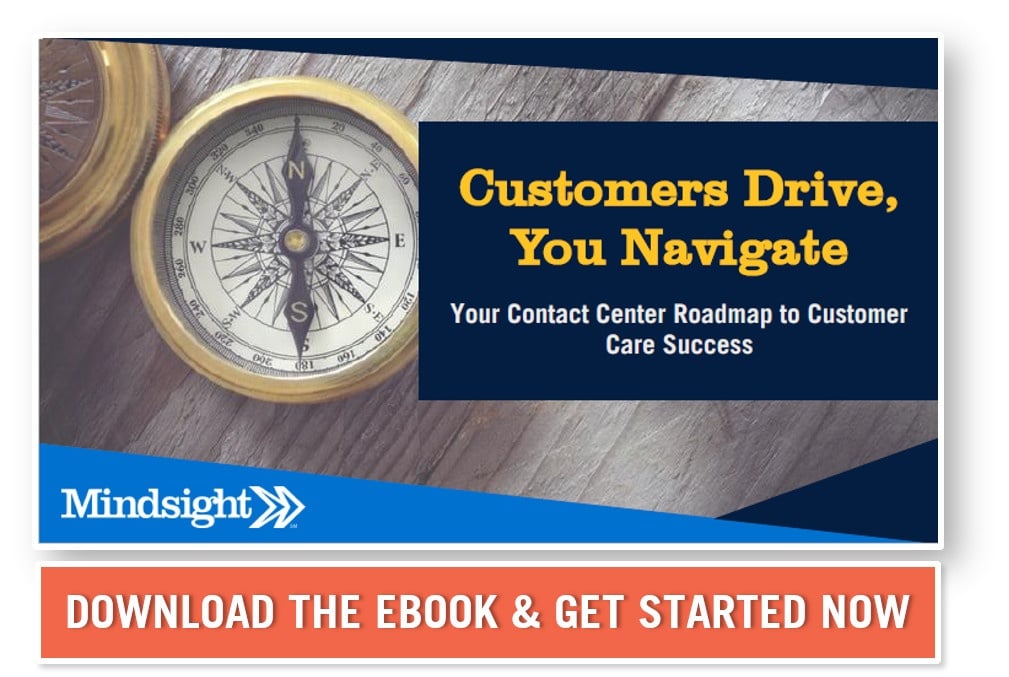October 24, 2018 by Siobhan Climer
By far one of the most challenging aspects of a contact or call center manager’s work is creating a schedule staff like. It’s a multi-pronged operational challenge; managers need to accurately assess call volumes and data, employee preferences, and omnichannel strategies to ensure the right number of the right staff are at the right place at the right time. That’s a lot to coordinate.
Here are our top ten contact center scheduling tips for call managers looking to build a schedule that works and the team loves.
Top 10 Contact Center Scheduling Tips
#1: Recruit Based on Schedule Availability
High turnover is a constant threat in the contact center, and as such, hiring managers and recruiters may find themselves desperate for new staff. But hiring someone with the plan to “figure out the schedule later” is a recipe for disaster. As you recruit, be upfront and honest as to the needs you have, and weight that criterion heavily during the hiring process.
#2: Use Custom Designed Contact Center Scheduling Tools
 Oodles of scheduling software programs exist to assist managers with this process, but rarely do these tools fully integrate with your existing processes and applications. Contact center scheduling tip #2? Design a custom web application or tool that works exclusively for your team.
Oodles of scheduling software programs exist to assist managers with this process, but rarely do these tools fully integrate with your existing processes and applications. Contact center scheduling tip #2? Design a custom web application or tool that works exclusively for your team.
We help our customers realize a true competitive advantage by building the applications they need to do their job smarter and faster. Mindsight’s experienced group of developers knows exactly how to deliver a robust, scalable, and secure software solution that aligns with your goals.
To find out more about custom development, visit our Customized Solutions page.
#3: Analyze Call Center Metrics Using Workforce Management Software
Regardless of the application or software you use to gather your data, make sure you use that data to inform your scheduling processes. Workforce management software offers increased forecasting, quality of service, conversion rates, and agent satisfaction – those are some big bonuses.
#4: Use Flexible Work-at-Home Models
 The research is out, and it’s conclusive – flexible work models improve your contact center performance, in terms of talent acquisition, agent retention, customer satisfaction, and management metrics. When it comes to scheduling, flexible work models don’t only benefit employees; it benefits management.
The research is out, and it’s conclusive – flexible work models improve your contact center performance, in terms of talent acquisition, agent retention, customer satisfaction, and management metrics. When it comes to scheduling, flexible work models don’t only benefit employees; it benefits management.
Give agents the flexibility to work fewer days/week but with longer shifts and enable them – using your scheduling application – to exchange, give away, or take on shifts from one another. Contact center tip #4 is essential to keep up with work culture changes happening across industries today.
#5: Capture Core Skills During Peak Hours
Identify your core team of agents that you rely on to provide the best customer experience, and make sure most of those agents are scheduled for your peak hours – but not all. Make sure you have at least one top agent scheduled during your other shifts to provide support to newer agents.
At the same time, it is important to keep those agents happy. Identify the preferences of all your agents, and do your best to schedule within those times.
#6: Notate Weather, Political Events, Cultural Disruptions, and More
Things happen, both within your industry and elsewhere. Perhaps an upcoming hurricane, sporting event, or political rally will affect the geographic region within which your – or your customers – operate. Every time you publish a schedule, take a moment to consider if any upcoming events might impact your team or your customers.
#7: Combine Work-from-Home and On-Call Strategies
Part of a flexible work model includes an on-call strategy; however, consider how being on-call affects your agents off-time. Allow your on-call agents to take calls from home. This increased flexibility means your on-call agents can go about their normal time off activities without worrying about an office commute. This will give you greater flexibility in utilizing on-call strategies to support your call center performance.
#8: Provide Non-Priority Tasks
A quiet day doesn’t have to mean a wasted workforce; create a priority list of tasks to work on for agents. That way, if your channels are silent, agents are still able to be productive and support the contact center.
#9: Perform Customer Journey Mapping Exercises
Of all our contact center scheduling tips, understanding your customer is a priority. Who are your customers? Why do they contact you? When do they reach out? We recommend completing a customer journey mapping exercise to make sure you have a complete picture of your customer persona and can tailor your contact center schedule to meet them where they are on their journey. Mindsight’s expert solutions architects will guide you through the process as you plan for the future of your contact center.
#10: Test and Adjust Scheduling Tools
No matter how much planning and preparation you put into your contact center schedule, something probably won’t work the first time. Don’t be discouraged. Testing your methods, analyzing the results, and adjusting your schedule is a top contact center scheduling tip – it’s essential. Be prepared to listen to your agents and customers and make the necessary changes.
Bonus Contact Center Scheduling Tip
One way to improve scheduling and contact center performance is through a contact center roadmap. Find out how to bring your contact center into the 21st century with omnichannel solutions, proactive protocols, and metrics worth analyzing.
Want more contact center scheduling tips – and tips around contact center strategy? Here’s our free eBook – Customers Drive, You Navigate: Your Contact Center Roadmap to Customer Care Success. We’ve helped hundreds of organizations build world-class contact centers by integrating omnichannel solutions, understanding the customer journey, and developing actionable steps to improve agent metrics. Review the strategy behind our work in the eBook and let us know how we can help you.
Like what you read?
Contact us today to discuss our contact center scheduling tips.
About Mindsight
Mindsight, a Chicago IT consultancy and services provider, offers thoughtfully-crafted and thoroughly-vetted perspectives to our clients’ toughest technology challenges. Our recommendations come from our experienced and talented team of highly certified engineers and are based on a solid understanding of our clients’ unique business and technology challenges.
About The Author
Siobhan Climer, Science and Technology Writer for Mindsight, writes about technology trends in education, healthcare, and business. She previously taught STEM programs in elementary classrooms and museums, and writes extensively about cybersecurity, disaster recovery, cloud services, backups, data storage, network infrastructure, and the contact center. When she’s not writing tech, she’s writing fantasy, gardening, and exploring the world with her twin two-year old daughters. Find her on twitter @techtalksio.




